
Colorado is the USA’s leading producer of hemp, with over 40,000 acres dedicated to the crop.
It’s considered the best state to grow the crop thanks to its ideal climate, soil composition, and elevation. It’s also made easier thanks to the state’s straightforward rules on cultivating it for cannabis.
Cannabis consumption was legalized in Colorado in 2012, which caused the popularity of growing hemp to explode across the state. Hemp is used for a wide variety of purposes, from industrial hemp used in construction to hemp cultivated for clothing and products, including the popular CBD oil used in skincare and herbal remedies.
But growing this lucrative crop poses several challenges. Outdoor cultivation of hemp is tough because of hemp’s environmental sensitivity.
Growing hemp indoors is becoming the favored way, but this costs more due to the increased amount of energy required, which eats into the farm’s overall profits.
Whether you are an outdoor or indoor cultivator of hemp, solar energy can be hugely beneficial, reducing your operational costs and contributing toward a healthier and more bountiful crop.
Here’s how.
In a Nutshell
- A solar installation has the capacity to reduce your hemp farm’s energy bills by up to 96%.
- Solar power is not vulnerable to grid outages and can deliver a more consistent and reliable source of electricity, keeping your farm running 24/7.
- Energy bills have increased by 41% since 2017. Going solar will protect you from the expense of any further increases.
- Most of a hemp farm’s carbon footprint comes from its electricity consumption. Going solar will greatly increase the sustainability of your business.
- Outdoor hemp farms require careful and precise watering. A solar-powered irrigation system gives you more flexibility and versatility to achieve this.
- Growing hemp under raised solar panels helps retain soil moisture and provides protection from heat stress, resulting in a healthier crop.
How Solar Can Benefit Hemp Cultivation
Remove Reliance on Grid-Based Power
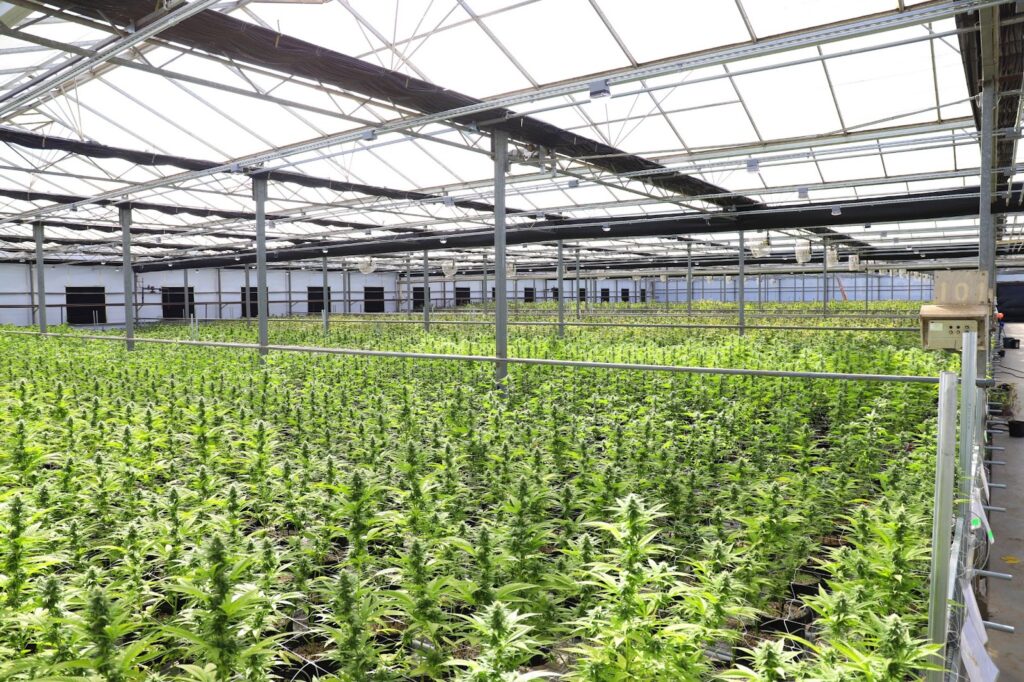
Hemp farms – especially indoor hemp farms – use a LOT of energy.
An outdoor farm will rely on electricity for irrigation, harvesting, processing, and transportation, while an indoor farm will need energy for lighting, humidity control, ventilation, heating and cooling, and more.
Since Colorado is the top state for hemp farming, it probably won’t surprise you to learn that a ton of its electricity consumption is used to cultivate hemp. In fact, in 2018, 4% of Denver’s total electricity consumption came from indoor hemp farms!
So, if you’re actively looking for ways to reduce your electricity costs, then solar energy is the best solution.
After the initial installation cost, it costs very little to run and maintain. A well-positioned solar system can produce enough electricity for you to reduce your energy bills by up to 96%! Moreover, you can enjoy these savings year on year as solar panels can last for several decades (although they do drop slightly in efficiency).
Imagine a $10,000/month energy bill dropping 96% to $400! Or a $5,000/month bill dropping to $200.
How much extra profit would you make from your hemp products if this happened?
Protect From Energy Cost Increases
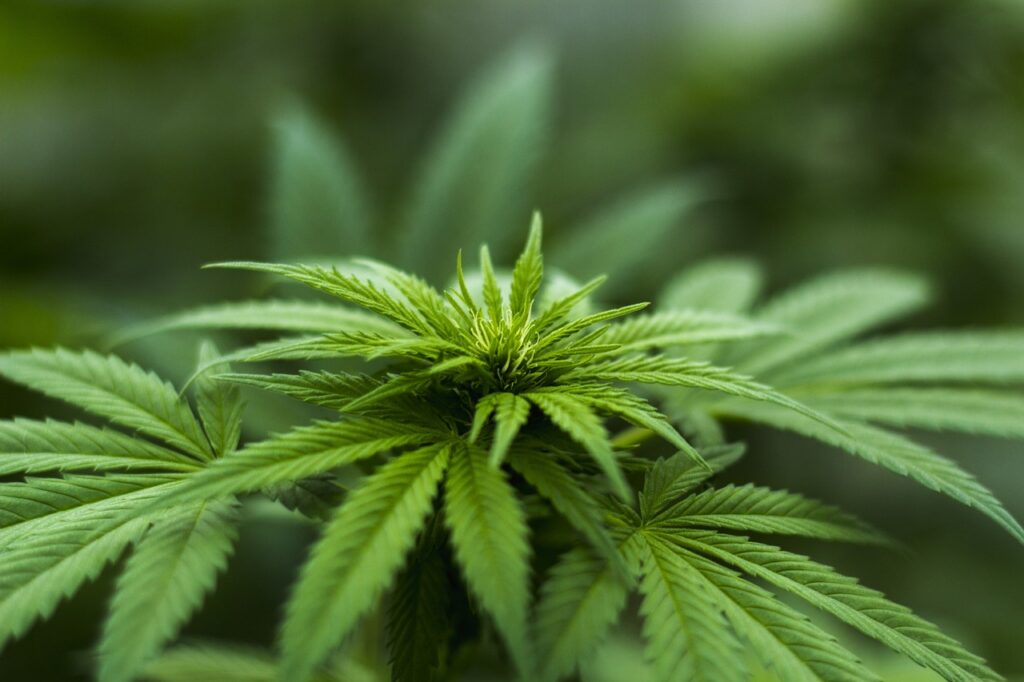
We need to level with you. Energy prices aren’t going down anytime soon, and by anytime soon, we actually mean never.
The past few years have been bad for energy cost increases and bad for business. Utility companies have relentlessly raised energy costs even though they continue to make a healthy profit.
Xcel – Colorado’s largest utility provider – is the worst offender. It inflicted a 6%+ rise on its customers in April 2023, and another 4.4% increase in September 2023, and it still wants to increase your bill further!
The truth is that power bills have always been rising. The average annual rate growth for Colorado is 2.6%, although the average industrial electricity bill has soared by 41% since 2017.
If we project that increase of 2.6% over the coming years, the results are not fun:
- A hemp farm with an annual energy bill of $129,596 in 2023 will see it rise to $176,343 by 2035
- A hemp farm with an annual energy bill of $259,204 will face increases up to $352,704 in 2035
These estimates are conservative too. If rates continue rising year on year at the rate they have been since 2017, the future figure will be a lot higher.
Fortunately, solar energy provides an escape from sky-high bills. We already looked at how the power of the sun can reduce energy bills by up to 96%. If you’re paying that much less, then rate increases will be easily manageable.
However, you can go one step further and remove your reliance on grid-based energy entirely. Rather than selling your excess solar-generated power to the grid, you can instead divert it into a solar battery. This gives you total energy independence and, best of all, a $0 energy bill!
Protect From Power Outages
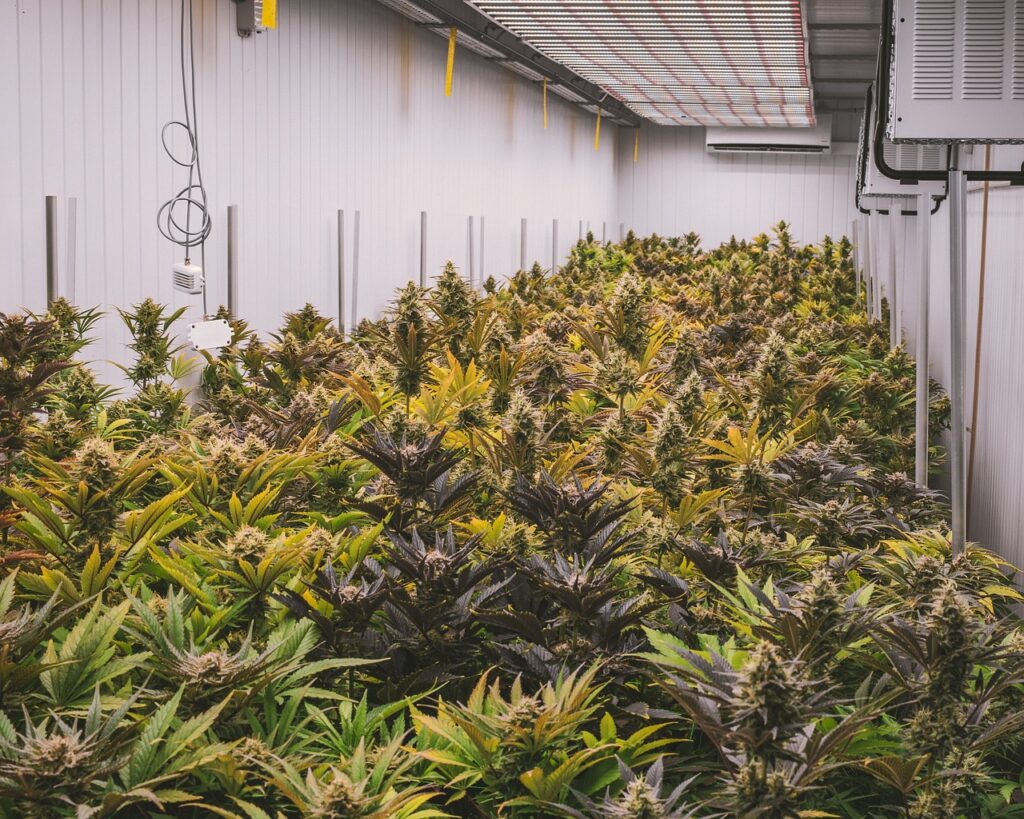
Colorado has an aging grid infrastructure that’s being put under consistent and increasing strain. As our weather gets warmer and we rely more on power to keep us cool, the grid will no longer be able to cope.
This can result in only one thing – blackouts.
Power outages can be devastating for a business, especially if you’re relying on it to keep plants alive.
Indoor hemp farms would be particularly affected in this scenario as most of what the plants need requires electricity to deliver it. Outdoor hemp farms, while not as severely affected, still rely on electricity to water the crops.
Of course, a solution to this problem is to have backup generators. However, these are noisy, extremely expensive to run, and require a lot of maintenance and attention.
On the other hand, a solar system will deliver consistent energy no matter what the grid is doing. When you have a reliable power source, your business is far more resilient and able to withstand challenging conditions.
Shrink Your Farm’s Carbon Footprint
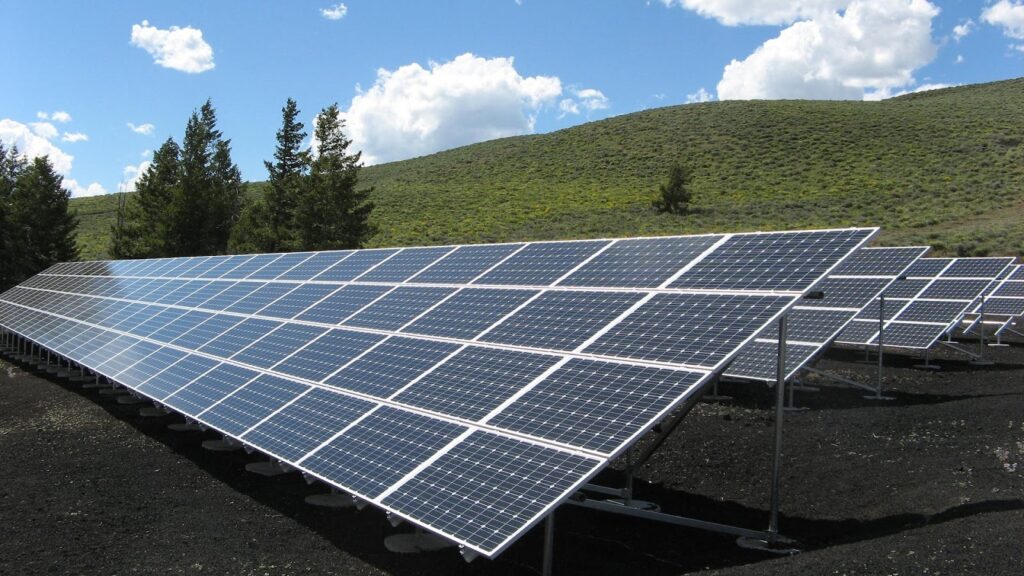
If you run an outdoor hemp farm, you can rest easy as your carbon footprint isn’t so large.
In contrast, indoor hemp farms have a greatly increased carbon footprint thanks to the amount of power they consume. The carbon emissions equate to a massive 2,283 to 5,184 kilograms of carbon dioxide per kilogram of dried flower.
Around 25% – 27% of an indoor hemp farm’s carbon emissions stem from air conditioning, humidity control, and lighting. Additional emissions will come from feeding and watering systems.
When you start getting all your electricity from the sun, all of those energy-produced carbon emissions disappear. Solar panels are sustainable and green, and through their use, you’ll make your business sustainable and green.
Besides creating a business that’s better for the planet, you should also think about the credibility you will gain for your product and your brand image.
Consumers want more sustainable products and are even willing to pay more for them. So, not only will your product be cheaper to produce, but you could potentially charge more for it too!
Increased Irrigation Efficiency

Hemp is often touted as a thirsty crop, but this isn’t really true. Hemp does, of course, need a decent amount of water, but it’s just as sensitive to over-watering as it is to under-watering.
The plant loves moist soil that is well-drained and aerated. If you can achieve this, your crops will thrive outdoors.
The issue is that most irrigation systems used for crop watering are inflexible and cannot be easily moved away from their power source. This often results in uneven watering or the inability to reach the more remote areas of the farm.
A solar system has a great deal of versatility over where it can be placed. As long as the solar panels have unobstructed access to sunlight, you can install them just about anywhere on your farm.
This gives you more control over where you can run your irrigation systems and you can set them up to achieve even coverage. This is particularly true if you employ a drip irrigation system since this will deliver moisture to the soil without overwhelming your hemp plants.
If you’re concerned about losing all the excess power that your solar panels generate during the day, you needn’t be. A solar battery will collect and store your excess power for use when your panels are ineffective, such as at night.
Even though your system will be entirely independent of the grid, you can still enjoy a 24/7 source of free power!
Hemp and Power Combined: Agrivoltaics
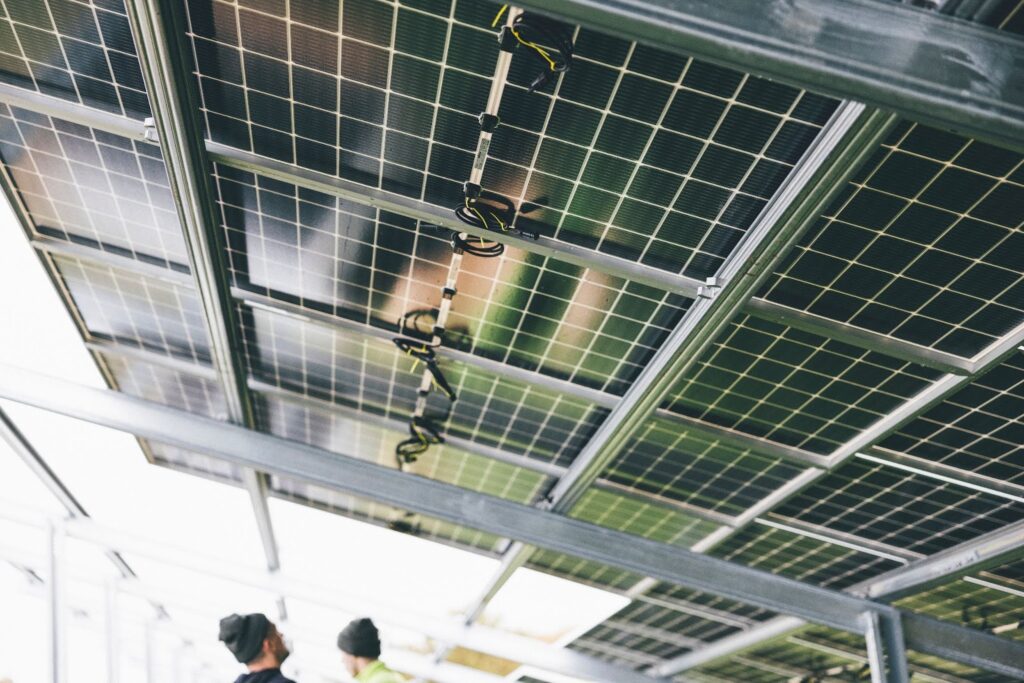
Agrivoltaics is the practice of adding solar panels to an area where you grow crops. It has been proven to retain more moisture in the soil, prevent water runoff, and provide a more ideal microclimate for crops to thrive.
Moreover, the shade that the solar panels generate is highly beneficial since it protects crops from heat stress and damage – something that hemp is vulnerable to – so there’s no leaf curling, wilting, or discoloration.
Since hemp loves damp soil, agrivoltaics can work to reduce the crop’s watering needs through improved moisture levels in the soil. The plants stay hydrated for longer, meaning you have to dedicate less of this resource to keep your hemp healthy.
To create an agrivoltaics system, the solar panels are installed higher off the ground, affording enough space for the hemp to grow underneath. This may not be practical for all varieties of hemp, given that the hemp plant can reach 20 feet in height. However, shorter hemp plants of around 6 feet will have more than enough space under solar panels to thrive.
Agrivoltaics has been used around the world with great success and it prevents farmers from having to decide between using their land for crop production or for solar energy generation.
This could be a great solution for outdoor hemp cultivation and could lessen the reliance on indoor farming setups, which are costly and energy-intensive.
Get in Touch With 8760 Solar
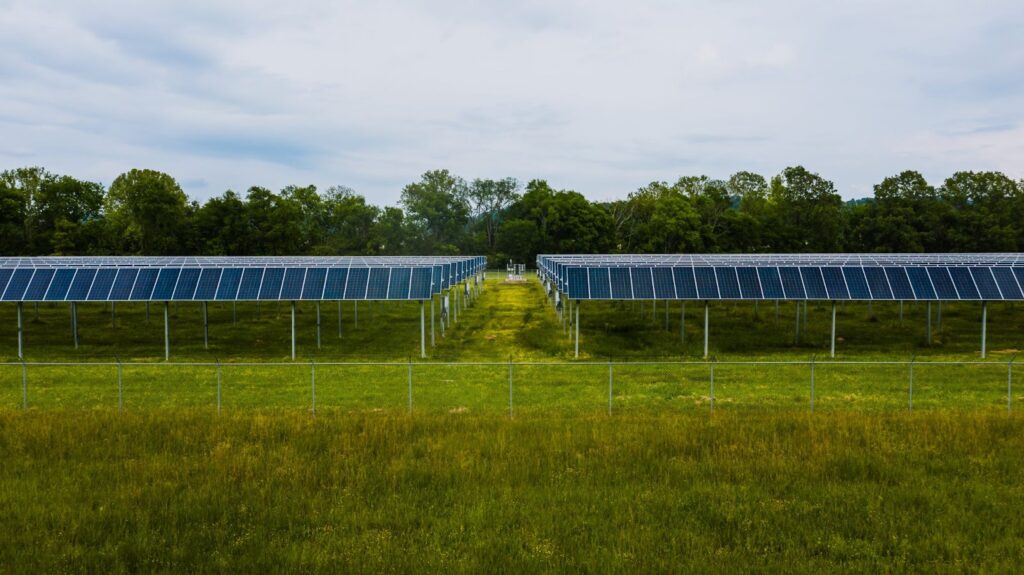
We love that Colorado is a trailblazer for the USA’s hemp production, and we want to see more of it!
Going solar is a viable – and affordable – solution that results in energy independence and healthier profits.
Plus, when you take into account all of the available tax credits and incentives, such as the 50% REAP grant and the 30% federal tax credit, solar becomes more affordable than ever.
We’re thrilled to report that it’s entirely possible to get over 100% return on investment for your solar system in the first year of its operation.
If that sounds appealing, get in touch with our team at 8760 Solar. We can run a full analysis of your hemp farm – whether outdoor or indoor – which will allow us to determine the best size and type of solar system for your needs, as well as the best place to install it.
We’ll also help you apply for the available monetary incentives (100% of 8760’s clients who applied have been successful in getting the REAP grant), so you can get the most for your money.
If you’re keen to go solar, then 8760 Solar is keen to talk to you! To get started, text “READY” to 719 470-0254 or contact us via email: sales@8760solar.com.
Frequently Asked Questions
Is Solar Power Good for Hemp Production?
Solar power is great for hemp production, especially indoor hemp farms that consume a huge amount of electricity. Solar energy will significantly reduce a hemp farm’s energy bills and provide a more reliable and consistent source of power.
Can I Run My Cannabis Farm on Solar Energy?
You can run a cannabis farm on solar energy if you install a solar system large enough to accommodate your energy consumption needs. If you also install solar batteries, then you can store the excess power your panels generate during the day for use during the hours of darkness. This will give you complete independence from the grid.
How Many Solar Panels Do I Need to Run a Grow Light?
As a rule of thumb, you will require 200 to 300 watts of solar panels per 1kWh of daily energy that a grow light consumes. The average solar panel has an output of 250 to 400 watts. Therefore, you will need around one solar panel per grow light.
